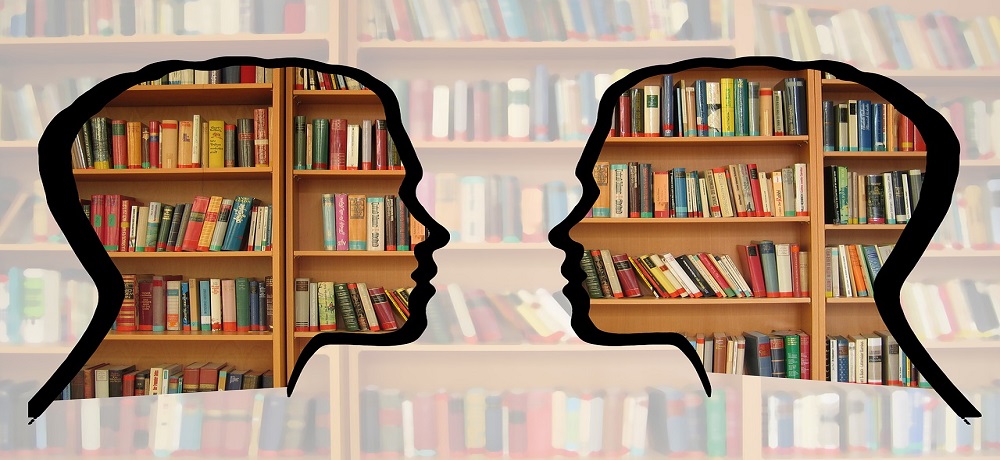Liz White, Further Education Representative for the CILIP Information Literacy Group, considers the opportunities and challenges experienced in decolonising FE college libraries, including a possible role for information literacy in the process.

As a member of the Academic Librarian team at the University of Derby, I have had the opportunity to reflect on this subject as it has, rightly so, been a regular topic of conversation for some time. I’ve learned a lot from my colleagues during these discussions and have been reading wider on the topic to further develop my understanding of the issues involved. I would be surprised if librarians reading this haven’t done something similar over the last couple of years!
What is decolonisation?
It is generally understood within the education sector that, in simple terms, decolonisation is the process of ensuring that the sources of information that learners have available to them are representative of their potential audience. Sources should provide a range of voices and, while race has been the media’s focus (there has been recognition that much of the material students are asked to read is written by white people, with publications primarily originating in the Global North rather than the Global South), this should also extend to the availability of women’s voices as well as those in the LGBTQ+ community. Libraries can support decolonisation by ensuring that the resources they provide are from the full range of voices, providing students with the opportunity to learn within the context of their own backgrounds and to appreciate the expertise and experience of others.
“Decolonising the curriculum means exposing kids to the richness of knowledge [from the] global curriculum” (Patel, paraphrased in Okolosie, 2020). While this description is from a leading education consultant discussing decolonising schools, it is a clear definition that can be laterally applied to learners in any context.
I found the University of Bristol’s Future Learn course on Decolonisation to be very helpful in defining what it means within the context of my role, and to understand the impact of homogenous information sources on a diverse population of students. The focus is on universities, but this led me to ponder on what this would look like in FE colleges and, more specifically, what College Librarians can do to support this process.
There is no reason why Further Education institutions should not be looking at ways to decolonise. However there is very little out there discussing decolonising this area of education. There’s a wealth of websites and blogs supporting this within Higher Education and some useful information on decolonising schools. Both can of course be adapted, but there seems to be very little specifically focused on this for FE.
Auditing stock
To get myself started, and to find out if homogeneity is an issue for Buxton and Leek College (part of the University of Derby), I carried out a basic audit exercise on the FE textbooks we have in the library for our Level 1 – 3 students to use in support of their studies. I looked at vocational textbooks published from 2015 (excluding Maths and English resources) and noted the authors of each. I identified 50 authors.
I had to make a judgement of their gender based on names, so I acknowledge I may have made some errors there and of course I am unable to see if an author identifies with a non-binary gender. Of the 50, I made an assumption that 19 were male and 31 were female. On the (binary) gender balance front, so far so good. This is a good balance considering that in 2019 the schoolteacher workforce was made up of 75.8% women (Department for Education, 2021) and that women seem to thrive in an FE environment more than men, and more than in other sectors of education (Welham, 2015). 64.1% of FE learners are female (ONS, 2020). Regarding a good gender balance, FE may well be ahead of HE in this regard.
Discovering each authors’ ethnicity was then down to whether they had an open LinkedIn profile or a webpage showcasing their work that included a photograph. Again, I was making a judgement call based on one photograph, so open to errors, but of the 50 authors I could see 25 photographs and all of these authors were white.
All of them.
In 2013-14 the proportion of England’s FE teachers identifying themselves as non-white was 10.2% (UCU, 2016). To be representative of the range of teachers within the sector at least 2 or 3 of these books ought to be by black, Asian or mixed ethnicity (BAME) authors. 31.6% of FE learners in the UK declared themselves as being from BAME backgrounds (ONS, 2020), so the authorship is clearly not representative of the readership.
Identifying whether each individual is a member of the LGBTQ+ community is, I believe, a step too far and not possible via the means I had. I decided it was a little bit too ‘stalky’ to investigate! Potentially there could be a range of diversity in this area among the 50 authors identified, so our LGBTQ+ students may be well represented.
Overall, I was shocked (but not particularly surprised) at the authorship of the leading FE textbooks. What message does this give to our BAME students when the textbooks available to them are written exclusively by white people? It would be interesting to drill down into this further and look at the additional resources that are used, the trade publications, webpages, and YouTube videos that students refer to, to investigate the authorship of these resources. Hopefully, these provide a more realistic balance.
In FE we have less choice about the texts we purchase for our libraries than our HE colleagues. Our textbooks are written specifically for the programmes that are being taught, whether that is a BTEC, CACHE or City and Guilds course, for example. Diversifying these resources will be down to the publishers in the future, though we can of course influence this by expressing our concerns. Additionally, the content of courses may well also need decolonisation and this will be the responsibility of the awarding bodies. Perhaps this will be built into the course design of T-levels? We must be mindful of this.
How can we support decolonisation in FE?
In the meantime, then, what can we do to support decolonisation within our colleges? What role can information literacy play in this process?
Certainly, teaching FE students critical thinking skills is going to help. Providing learners with the tools to be able to assess for themselves whether a resource offers a balanced view is key. Encouraging them to ask questions: Who wrote this? Why was it written? Who is the intended audience? These are the basic questions we encourage students to ask when they are researching a topic. But on top of these, we can encourage them to ask if the available information presents a balanced view. Would a person of colour have a different opinion? What about a person living in Brazil, rather than the UK? Would they agree? Why are all the authors of my textbooks male? Or all female?
I will certainly revisit my information literacy session plans to see if there are any key elements of critical thinking teaching that can be adapted to ensure that learners can identify potential bias in their college resources.
We can also, when our budgets allow, purchase titles from a wider variety of authors. If we can’t do this with textbooks, we can purchase books for students to read around the subject that guarantee that a variety of opinions, contexts and voices are available.
When planning our activities, we can also refer to CILIP’s Ethical Framework, which underlies the importance of ensuring that materials provided are free from bias, support equitable treatment, and encourage intellectual freedom.
It would certainly be very interesting to hear how College Librarians have begun to approach this topic. Do get in touch to let me know!
References:
CILIP (2018) CILIP’s Ethical Framework. Available at: www.cilip.org.uk/page/ethics (Accessed: 7 May 2021).
Department for Education (2021) School Teacher Workforce Available at: www.ethnicity-facts-figures.service.gov.uk/workforce-and-business/workforce-diversity/school-teacher-workforce/latest#by-ethnicity-and-gender (Accessed: 7 May 2021).
Office for National Statistics (2020) Further Education and Skills. Available at: https://explore-education-statistics.service.gov.uk/find-statistics/further-education-and-skills/2019-20 (Accessed: 12 May 2021).
Patel, P. paraphrased in Okolosie, L. (2020) ‘”White guilt on its own won’t fix racism”: decolonising Britain’s schools’, The Guardian, 10 June. Available at: www.theguardian.com/education/2020/jun/10/white-guilt-on-its-own-wont-fix-racism-decolonising-britains-schools (Accessed: 12 May 2021).
UCU, 2016. The experiences of black and minority ethnic staff in further and higher education. Available at: www.ucu.org.uk/media/7861/The-experiences-of-black-and-minority-ethnic-staff-in-further-and-higher-education-Feb-16/pdf/BME_survey_report_Feb161.pdf (Accessed 7 May 2021).
University of Bristol (no date) ‘Decolonising Education: From Theory to Practice’, Future Learn. Available at: www.futurelearn.com/info/courses/decolonising-education-from-theory-to-practice/0/steps/190387 (Accessed 17 May 2021).
Welham, H. (2015) ‘Mind the gap: why colleges have so many female leaders’, The Guardian, 19 May. Available at: www.theguardian.com/education/2015/may/19/colleges-female-leaders-inclusive (Accessed: 7 May 2021).



